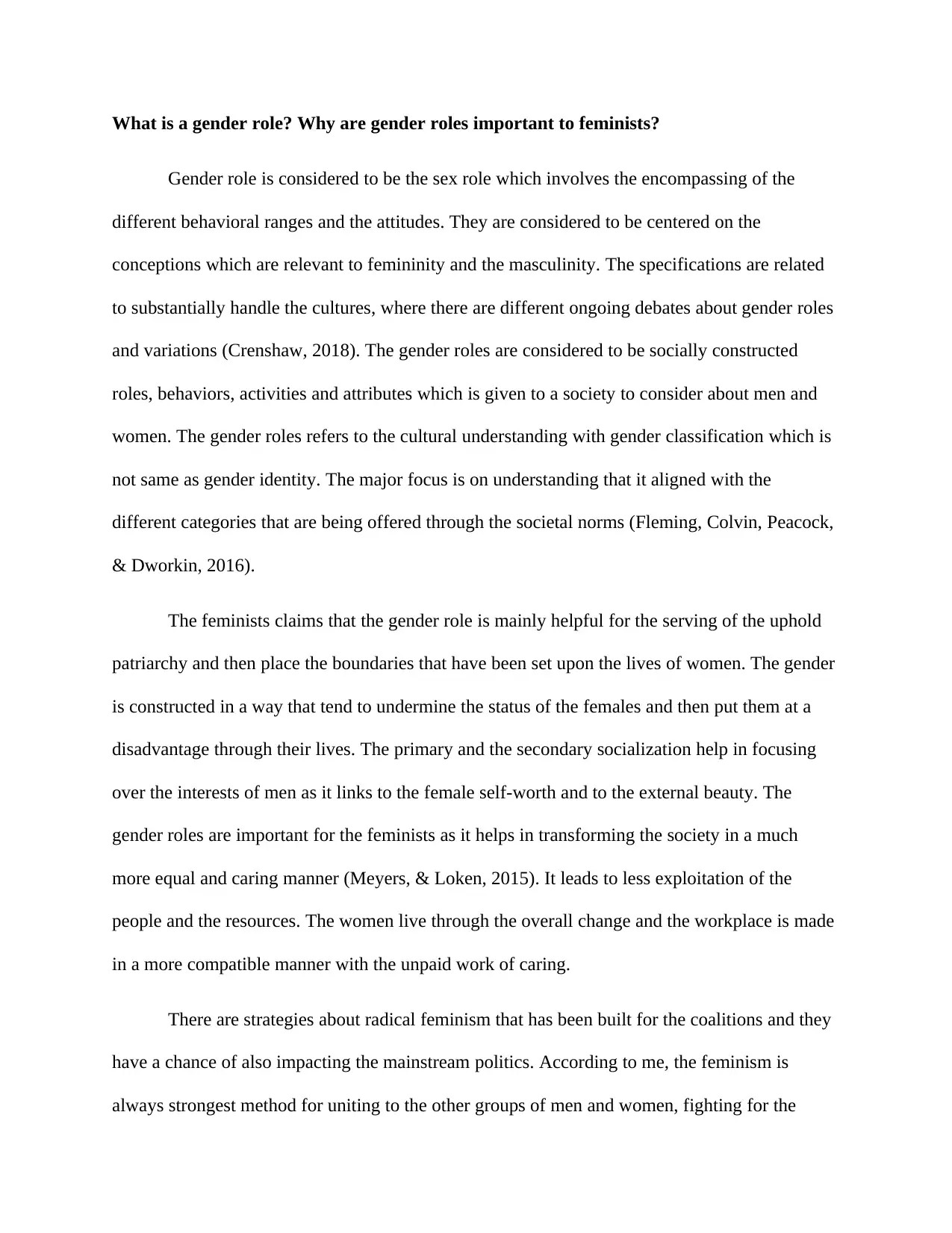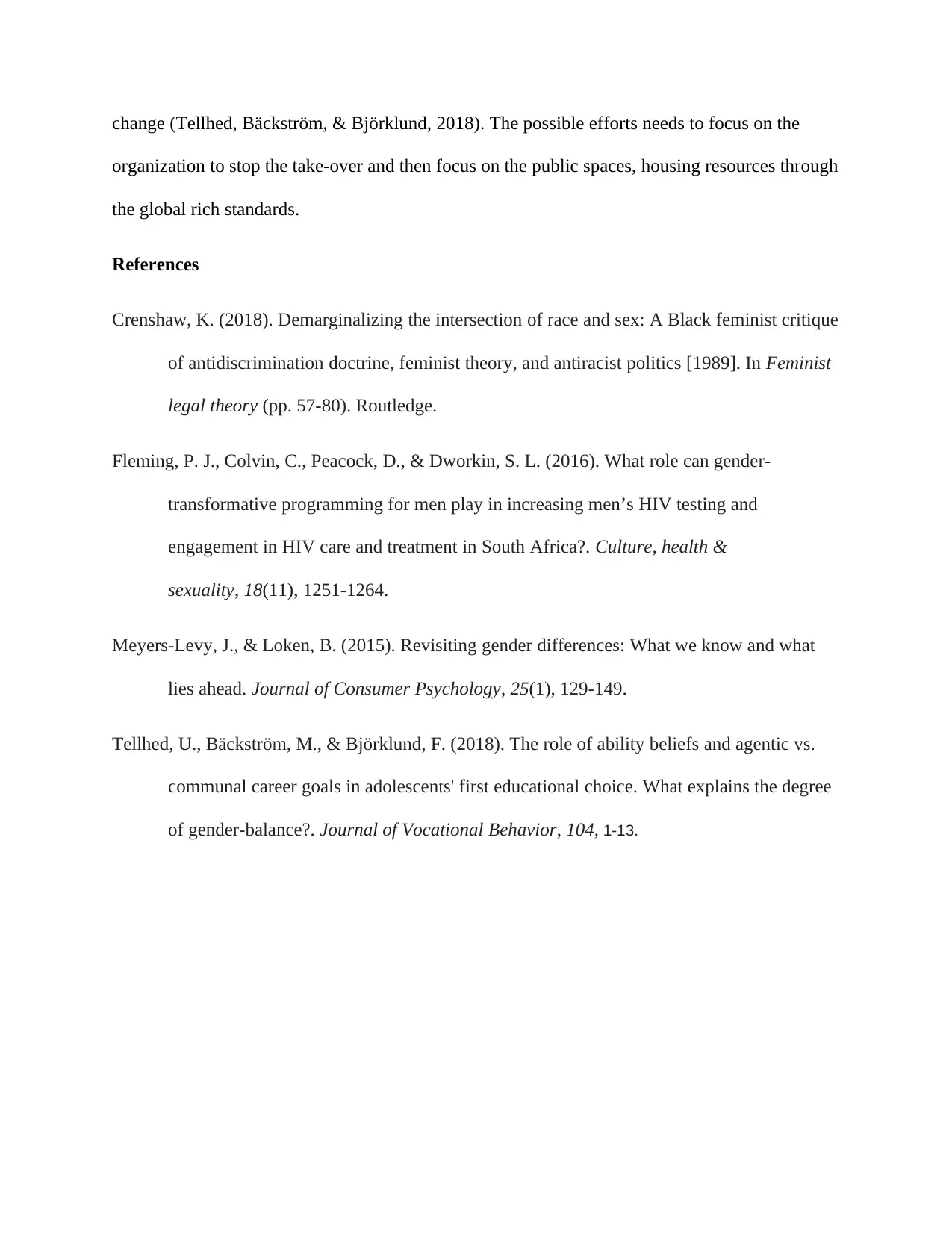Analyzing Gender Roles: A Feminist Perspective on Patriarchy
VerifiedAdded on 2023/04/03
|2
|496
|159
Essay
AI Summary
This essay examines the concept of gender roles from a feminist perspective, defining gender roles as socially constructed behaviors and attitudes associated with masculinity and femininity. It highlights the feminist argument that these roles serve to uphold patriarchy and limit women's lives by undermining their status and reinforcing external beauty as their primary value. The essay emphasizes the importance of gender roles to feminists in their pursuit of a more equal and caring society, advocating for societal transformation to reduce exploitation and create workplaces more compatible with caregiving responsibilities. It also touches upon the potential of radical feminist strategies to impact mainstream politics and promote unity among men and women in the fight for change, ultimately calling for efforts to challenge the takeover of public spaces and housing resources by global standards.
1 out of 2








![[object Object]](/_next/static/media/star-bottom.7253800d.svg)